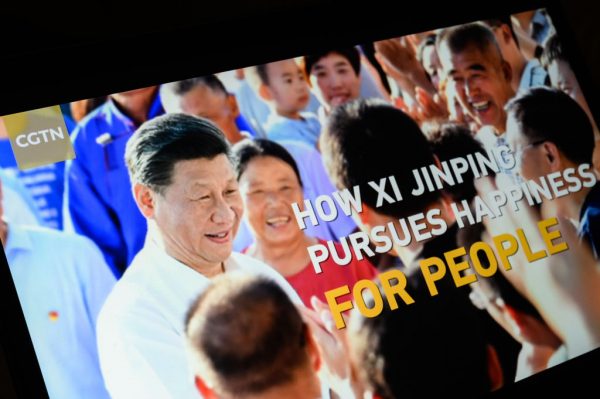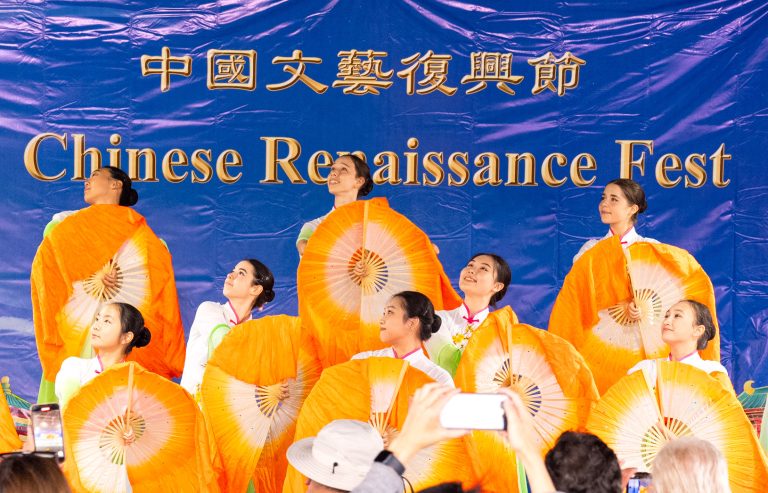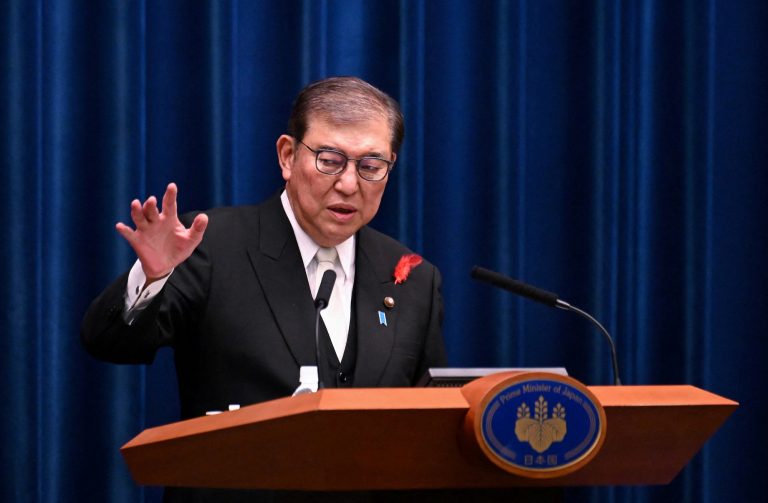Norwegian broadcaster Telia has stopped airing Chinese state-backed media outlet CGTN after receiving a letter from victims of the Chinese Communist Party’s (CCP) practice of extracting forced confessions from those it persecutes.
The letter, signed by more than a dozen victims of forced confession, was not only directed at Telia but several other broadcasters around the world, including Canada’s Rogers Communications, Germany’s Vodafone, Switzerland’s UPC, as well as Comcast. The letter pointed out that by giving CCP propaganda organs such as CGTN distribution, service providers are assisting the communist regime’s efforts to silence civil society and persecute its own citizens.
Peter Dahlin, Director of human rights group Safeguard Defenders, which forwarded the letter to Telia, has also urged other global broadcasters to ban CGTN given that it serves as a promoter and apologist for the communist regime’s multitudinous human rights violations and genocides.
“We have been placed in solitary confinement, held incommunicado, and been subjected to physical and mental torture,” read the letter. “Our footage is used to spread fake news and fear among the rights communities we belong to.
“As direct victims of this practice, we appeal to you to carefully examine the information provided below, and to consider whether TV providers in democratic societies should continue to be morally complicit in airing such intentionally distorted information obtained through torture, threats, and deprivation.”
Success
You are now signed up for our newsletter
Success
Check your email to complete sign up
According to Safeguard Defenders, Telia Norway took immediate action upon receiving the letter, suspending both CGTN and CCTV-4. Local media also reported complaints by two Swedish victims of China’s forced confession practice.
Action by other nations
Telia is not alone. Several other companies and regulatory bodies from other countries have also enacted strict action against CGTN due to the network’s role in astroturfing the Communist Party’s crimes against humanity..
United Kingdom: In February, British regulator Ofcom revoked CGTN’s license after discovering the channel was under the direct control of the CCP. This violated British broadcasting laws, which requires media outlets to be free from political control. Moreover, the regulator had also received complaints of forced confessions being aired.

The decision triggered a strong reaction in China, and Beijing retaliated by banning BBC World News from broadcasting in the country under the pretext of so-called “protecting the ethnic solidarity and national interests.” In March, Ofcom fined CGTN £225,000 for its biased coverage of the Hong Kong protests in addition to airing forced confessions.
However, there are concerns the CGTN ban may not block the channel from broadcasting in the UK due to a treaty London and Paris joined along with the 47-member Council of Europe. The treaty allows a broadcaster to air content in any of the signatory nations provided that they fall under the jurisdiction of any single member state.
Since CGTN is operational in France, it could potentially mean that the channel can be broadcast in the UK, thus circumventing the Ofcom ban.
Australia: Broadcaster SBS suspended segments from CGTN and CCTV in March following complaints. SBS used to air a 15-minute CGTN English news program and a 30-minute CCTV Mandarin language program, “We have made the decision to suspend the broadcast of the overseas-sourced CGTN and CCTV news bulletins while we undertake an assessment of these services,” SBS said in a statement.
France: The 13 victims of forced confessions in the Safeguard Defenders letter also asked Paris-headquartered Eutelsat to upend its decision to carry CCTV4 and CGTN. The letter argued that victims have no way of demanding reparations and that the only deterrent to the Communist Party’s practice of forced confession propaganda is for television regulators to investigate violations and take appropriate action.
United States: The State Department designated CGTN and parent company CCTV as foreign missions last year under the Foreign Agents Registration Act (FARA). In 2019, Safeguard Defenders filed a complaint with the Federal Communications Commission (FCC), which accused Chinese state media of spreading propaganda and fake news in the U.S.
In March, the organization wrote another letter asking the FCC to investigate the matter. The second complaint also includes testimony from numerous victims of forced confessions.
Chinese Embassy in Estonia buys advertorials
Several other European nations are also waking up to the CCP’s propaganda after the largest newspaper in Estonia, Ohtuleht recently published a full-page advertorial from the Chinese Embassy, which claimed that reports of genocide against Uyghur Muslims in Xinjiang were “ridiculous lies and rumors.”
The ad attracted criticism from other journalists. The editor of Postimees, one of Ohtuleht’s main competitors, Mart Raudsaar, reminded the media they must not publish communist propaganda and that “as a country, we also have certain values.”
After immense criticism, Ohtuleht’s Editor-In-Chief, Martin Smutov, publicly apologized for publishing the advertorial, “We have tried to ensure the adverts correspond to the company’s values. In this case, we have gone against these values and apologize,” Smutov said to ERR News, adding, “We will make organizational changes to avoid similar mistakes in the future.”
The Chinese Embassy in Estonia had also earlier paid for advertorial placement in leading newspapers in Lithuania, which only served to backfire on the regime as it brought public attention to Beijing’s propaganda campaign in Eastern Europe.







